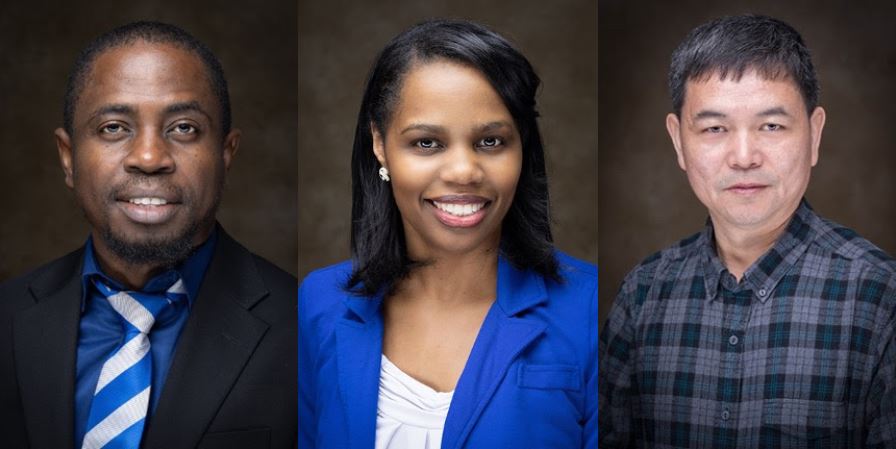
A faculty team at Fayetteville State University (FSU) has received a three-year, $393,641 grant from the National Science Foundation (NSF) to develop new opportunities for biology students to participate in authentic research on genetic engineering and computer-based biology.
The project—called the Genetic Engineering and Computational Biology (GECoB) initiative—is led by Dr. Tomilowo Abijo, Assistant Professor (Principal Investigator), with co-leaders Dr. Willietta Gibson, Assistant Professor (Co-Principal Investigator) and Dr. Jiazheng Yuan, Associate Professor (Co-Principal Investigator). It will incorporate research projects directly into biology courses, providing students with opportunities to work with advanced tools and methods employed by scientists in the field.
The goals include:
“This grant will bring inquiry-based projects into both introductory and upper-level biology courses, giving students early exposure to real-world research and preparing them for careers in STEM,” said Dr. Abijo in a press release. “Students will gain in-demand skills such as CRISPR-Cas9 gene editing, gene cloning, DNA sequencing, and machine learning, along with their applications in biological and biomedical research. These experiences will boost readiness for graduate studies, improve competitiveness in biotechnology careers, reduce student attrition in the Department of Biological and Forensic Sciences, and strengthen faculty teaching and research—ultimately enhancing the quality of biology education at FSU.”
This grant supports FSU’s mission to prepare the next generation of scientists—particularly students from underrepresented backgrounds—by giving them valuable, real-world research experience in fast-growing areas of science.

Kristen Botts co-founded the program with her husband, Nathan Botts, who is a Veteran himself. Photos provided by Kristen Botts.An organization helping Veterans live a full life after their service in the U.S. Military wants to connect Veterans and d

Patrick NoblesHuntington Bancshares Incorporated announced on Feb. 2 that it has closed its merger with Cadence Bank, a regional bank headquartered in Houston, Texas and Tupelo, Miss. This strategic partnership accelerates Huntington’s growth in

There is extensive dialogue surrounding Fayetteville as a travel destination or city aimed at recruiting new businesses and new residents. As someone who moved here from out of state, I thought it could be fun to share my personal experience as